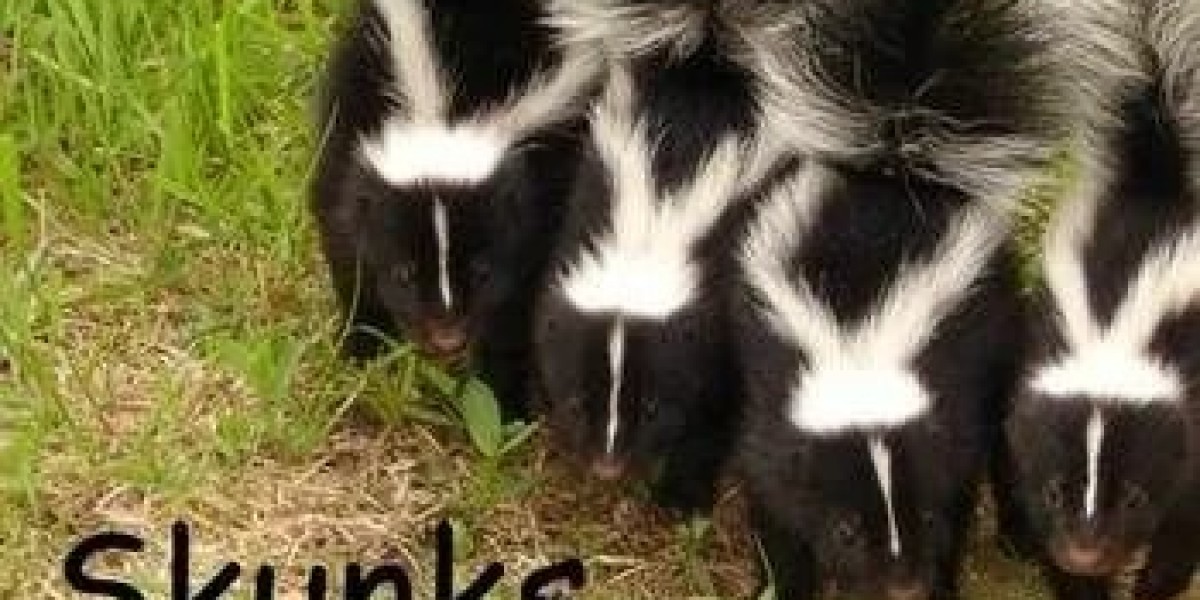Skunks may look cute from afar, but when they wander too close to your home, the story changes fast. Known for their unmistakable odor and nighttime habits, these small black-and-white animals can become a real nuisance for homeowners. Whether theyre digging up your lawn in search of grubs or nesting under your porch, finding an effective skunk repellent is a top priority. The good news? There are safe, humane, and natural ways to keep skunks away from your property without harming themor the environment.
Understanding Skunk Behavior
Before diving into skunk control, its important to understand what attracts skunks in the first place. Skunks are omnivores, meaning theyll eat just about anythinggrubs, insects, fruits, pet food, garbage, and even small rodents. Theyre most active at night, searching for easy meals in quiet, dark areas. They also prefer shelter, such as crawl spaces, sheds, or woodpiles, for nesting and protection.
Knowing this helps homeowners focus on prevention. The best skunk deterrent strategies begin by removing what draws them infood, water, and shelter.
Why Skunk Repellent Matters
Skunks dont just cause unpleasant odors; they can also carry parasites and diseases like rabies. Their digging can damage lawns, and if startled, their spray can linger for weeks. Using a skunk repellent offers a humane way to prevent these problems before they start. Unlike traps or poisons, repellents discourage skunks from entering your property in the first place, keeping the balance between wildlife and human space.
Natural Skunk Deterrents
If you prefer eco-friendly solutions, natural skunk repellents are an excellent choice. They rely on scents or sensations that skunks find unpleasant but are safe for pets, plants, and people. Here are a few effective options:
Citrus Peels: Skunks dislike the smell of citrus. Scatter orange or lemon peels around your garden, porch, or garbage area to discourage them.
Ammonia-Soaked Rags: The strong odor of ammonia mimics predator urine. Place rags soaked in ammonia near skunk burrows or entry pointsbut keep them out of reach of pets and children.
Pepper Spray or Cayenne Mixtures: A homemade skunk deterrent spray can be made by mixing water, dish soap, and cayenne pepper. Spray this around fences, sheds, and garbage cans.
Vinegar and Essential Oils: Strong-smelling oils like peppermint, eucalyptus, or citronella are also effective natural repellents.
These home remedies for skunks work best as part of a broader humane wildlife management plan.
Commercial Skunk Repellents
If DIY solutions dont do the trick, commercial skunk repellent sprays and granules are widely available. Many of these products use natural ingredients like predator urine (from coyotes or foxes) to trigger a skunks instinct to avoid danger zones. Others rely on strong essential oils or sulfur-based compounds.
When choosing a product, look for one labeled as safe for pets and the environment. Some repellents are also designed for multi-animal use, deterring raccoons, squirrels, and other pests at the same time. Apply these products around the perimeter of your yard, under decks, and near trash bins for maximum protection.
Skunk Spray Prevention and Odor Control
Even with the best precautions, theres always a chance of an encounter. Skunk spray prevention is crucial, especially if you have pets that spend time outdoors. Dogs are often the first victims of a startled skunk, and that smell is notoriously hard to remove.
To neutralize the odor, skip the tomato juice myth and mix this effective solution instead:
1 quart of hydrogen peroxide
cup of baking soda
1 teaspoon of liquid dish soap
Rub the mixture into your pets fur (or on affected surfaces), wait a few minutes, and rinse thoroughly. This combination breaks down the sulfur compounds in skunk spray, effectively removing the odor rather than masking it.
How to Get Rid of Skunks Safely
If a skunk has already made itself comfortable near your home, resist the urge to trap or scare it. Skunks spray when frightened, and the odor can linger for weeks. Instead, try these skunk control methods:
Remove Food Sources: Secure garbage cans with tight-fitting lids. Bring pet food indoors at night, and pick up fallen fruit from trees.
Seal Entry Points: Inspect your property for burrows or openings under sheds and porches. Seal them with wire mesh once youre sure the skunk has left.
Install Motion-Activated Lights or Sprinklers: Skunks prefer dark, quiet areas. Motion-activated devices startle them without harm, encouraging them to move elsewhere.
Use Ultrasonic Repellents: These devices emit a high-frequency sound that annoys skunks but is inaudible to humans.
These approaches focus on humane wildlife management, ensuring the skunk simply moves on rather than being harmed.
Skunk Repellent for Gardens and Yards
Gardeners often struggle with skunks digging for insects in flower beds. To protect your plants, sprinkle natural skunk deterrent granules or spray along garden borders. You can also plant strong-scented herbs like mint, lavender, or thyme, which naturally repel skunks and other pests. Maintaining a clean yardfree of clutter, fallen leaves, and open compost pilesalso helps reduce hiding spots.
Adding gravel or fencing around vegetable beds is another smart form of garden protection. Skunks dislike walking on rough surfaces and will usually move to softer ground.
Professional Skunk Control Options
When home remedies and repellents arent enough, it might be time to call a professional wildlife control service. Experts can identify den locations, safely remove the animals, and install exclusion barriers to prevent future visits. They can also offer advice on long-term skunk spray prevention and odor management.
Make sure to choose a company that practices humane removal methods and complies with local wildlife laws. The goal is to protect your property while respecting the animals place in nature.
Conclusion: Keeping Skunks Away Naturally
Skunks are part of the ecosystem, helping to control insect and rodent populations. But when they move too close to human spaces, its important to set clear boundaries. Using the right combination of skunk repellents, environmental maintenance, and humane wildlife management ensures that you can keep your home odor-free and skunk-free.
Whether you prefer natural skunk deterrents, commercial repellents, or preventive strategies, consistency is key. Regularly reapply sprays, seal off entry points, and maintain cleanliness around your property. In doing so, youll create an environment thats both welcoming to people and uninviting to unwanted wildlife.







